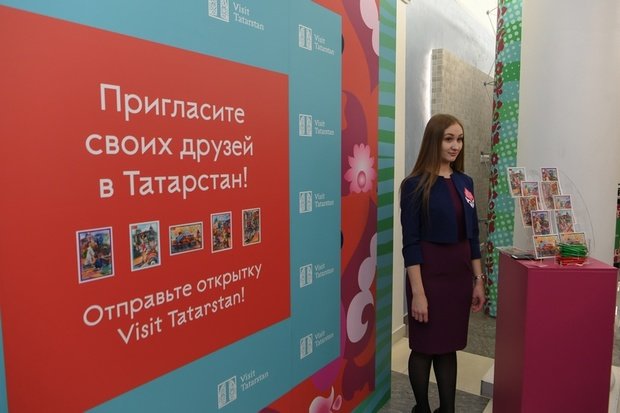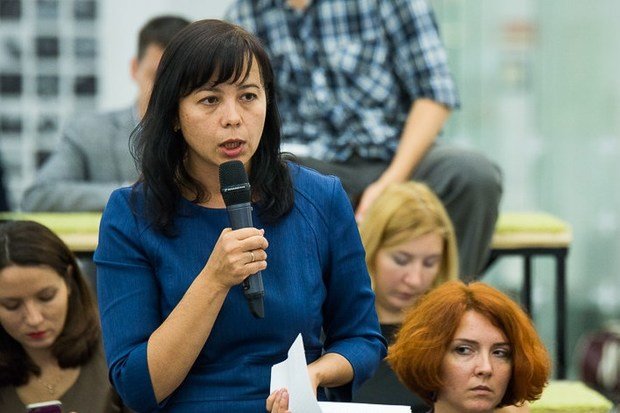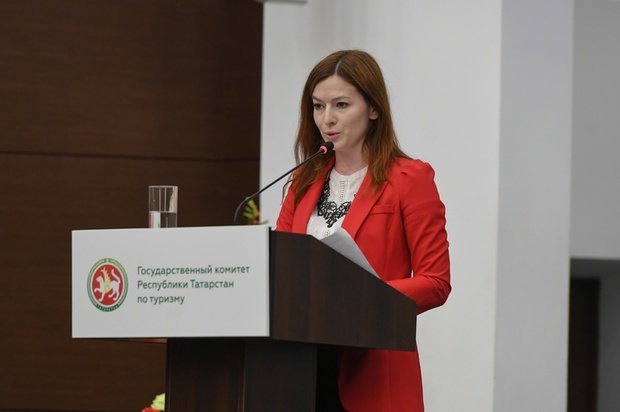''We hope the situation with apartment rental price increase will attract interest of Tatarstan tax authorities''
Tourism in Tatarstan: 3 million tourists, a drop in traffic to the Kazan Kremlin and spring decreases in hotel occupancy
The ups and downs in the sphere of tourism were discussed on 23 January at the final board of the Tatarstan State Committee for Tourism with the participation of Prime Minister of Tatarstan Alexey Pesoshin, member of the Council of the Federation Committee for Agrarian and Food Policy and Environmental Management Ildus Akhmetzyanov, chief federal inspector in the Republic of Tatarstan Renat Timerzyanov and deputy chairperson of the Tatarstan State Council, Executive Director of the Republican Fund of History and Culture Monument Revival of Tatarstan Tatyana Larionova. In general, the year was successful: the number of tourists exceeded 3 million people, the hotels reported on an increase in occupancy, and the amount of services provided and tax deductions in the budget of the republic increased again. Read the details of the results of one of the most dynamically developing spheres of Tatarstan in the material of Realnoe Vremya.
Growth promised – growth reached
It was expected that a number of tourists would exceed three million people in Tatarstan by the end of 2017. No sooner said than done. Sergey Ivanov, the head of the State Committee for Tourism of Tatarstan, reported at the board meeting that last year the republic received 3,1 million visitors. According to the Department for Migration Affairs at the Ministry of Internal Affairs of Tatarstan, 278,000 foreign tourists visited Tatarstan over 11 months in 2017 – it is by 11% more than in 2016. Residents of China, Germany, Turkey, Chile and Italy were the most interested in tourism opportunities of the republic. The Confederations Cup stood the region in good stead — if in 2016 the republic received only 32 Chileans, then last year — 2,817. There were also citizens of Iran, the USA, the UAE and India among foreign tourists.
Almost twice larger amount was spent last year on tourism from the budget of Tatarstan than in 2016 — 160,8 million against 87,8 million rubles, Sergey Ivanov reported. The investments gave the results — the volume of rendered services amounted to 20,7 billion rubles including the related sectors. The taxes alone were 733 million rubles, which is by 60 million more than in 2016. Taking into account the multiplier effect, the tax revenue increases to 4,4 billion rubles.

The major tourist centers of the Republic of Tatarstan showed an increase of 19,8% in average. The only object of the republic where the number of visitors decreased unexpectedly became the Kazan Kremlin. If in 2016 it was visited by 2,893 million people, in 2017 – by 2,774 million. Veliky Bolgar was visited by 70,000 people more (540,000 visitors in total), the island town of Sviyazhsk — by 73,000 people (491,000), Yelabuga — only by 1,000 people (468,000), Chistopol — by 6,000 (52,000), Tetyushi increased the result almost a half (from 25,000 to 45,000 tourists).
It should be borne in mind when summing up the results of the past year, in 2017 it was finally opened the intercepting parking in Sviyazhsk and now it has river traffic.
New routes and failures of 2017
The launch of the regional route Great Volga Road, which was included in the national programme for development of children's tourism of the ministry of culture of the Russian Federation, has contributed to the attraction of part of the tourists.
''This route includes the main attractions of Tatarstan and the Mari El Republic. It is planned that in 2018 it is to attract more than 2,000 students from all regions of Russia,'' Sergey Ivanov said.
Another new interregional route – Palaces and Mosques, developed jointly with associates from St. Petersburg. It is designed primarily for foreign tourists and is based on the contrast of the two cultures, the chairperson of the State Committee on Tourism said.
The opening of a number of direct flights played its role in the growth of tourist flow. Ivanov especially highlighted the launch of air communication with Riga, through which the residents of Central and North Europe can get to Kazan. The speaker also told about some failures, however, briefly. Not mentioning the failed flights to Georgia, he lamented that they failed to develop the air communication with Beijing.
''Unfortunately, despite major efforts on preliminary work and reception in Kazan of the first flight from Beijing, the flight programme from China did not take place in connection with the termination of the activity of VIM-Avia airline,'' the chairperson of the State Committee commented. They have not found a new carrier for the republic so far.

''An unpleasant surprise for us was a drop in occupancy in April and May''
President of the Association of Hotels of Kazan and Tatarstan Gulnara Safina told about the details of the situation with hotels. It was not so smoothly with the occupancy of the hotels in 2017 despite an increase in tourist traffic. According to ANO Center of Tourism Development of Tatarstan, last year showed the average occupancy of hotels at the level of 56% — it is by one percent more than in 2016. For comparison, the most successful years for the hotel business in the republic were 2012 and 2013, when the load was at 60%.
''An unpleasant surprise for us was a drop [in occupancy] in April and May — for hotels it usually was the peak of the high season. Besides, [a decline was observed] in September and October, though it is also high season,'' the president of the Association of Hotels of Kazan and Tatarstan commented on the results.
An increase in occupancy, on the contrary, was observed in February, March, June, July, November and December. The average price per room and revenue from it also increased — thanks to the Confederations Cup, major events in Kazan and holidays, which brought the hotel business of Kazan in the black.
The Association of Hotels of Kazan and Tatarstan was established just last year. By uniting the professional community, the leadership of the association tackled the problem of the industry. Among the resolved issues Gulnara Safina called establishing contacts with government agencies, the problem of providing with parking lots tourist buses from hotels in the city center, and others. However, difficulties still remain. Among them there are the ban on roof signs on the hotels on the territory of the ensemble of the Kazan Kremlin protection zone project action. The hoteliers following the example of the Moscow associates expect to achieve a reduction in tax rate on real property of hotels and land tax, which is now calculated based on cadastral value. As well as a reduction in tax rates on movable property of hotels.

Private apartments as a threat to hotel business
By the way, in 2017 the classification of hotels was completed in Tatarstan. According to Sergey Ivanov, 100% of all accommodation places have passed it. The speaker relished the opportunity and complained about a category of illegal accommodation such as private apartments, where accommodation price at the time of the World Cup in some cases rose to ''off the scale'' level. Such means of accommodation do not go through classification and are not regulated by the norms of accommodation or cost. He noted that in Kazan alone there are more than a thousand such objects. However, it is virtually impossible to deal with them and monitor their activities. In this part, Sergey Ivanov gently reminded the tax office that it would be great if they became interested in this area.
''We hope the situation with an increase in prices for private apartments will be of interest of the administration of the Federal tax service of the Republic of Tatarstan because it can be a good source of income for the budget of our republic,'' the chairperson of the State Committee for Tourism stood up for honest hoteliers.
The new head of the Tourism Development Centre, Dilbar Sadykova, reported later that one of the main trends of 2017 was a reduction of tourist spending on accommodation. In this regard, a number of tourists staying in rented apartments increased by 10%, she stated.